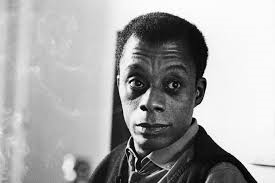About James Baldwin
Early Life and Education:
James Baldwin was born in Harlem, New York, to Emma Berdis Jones. His biological father was unknown, and his stepfather, David Baldwin, was a Baptist preacher with whom James had a difficult relationship. Growing up in poverty, Baldwin found solace in reading and writing. He attended DeWitt Clinton High School in the Bronx, where he worked on the school’s magazine with future notable figures like Richard Avedon.
Early Career:
After graduating high school in 1942, Baldwin took on various odd jobs to support his family, including laying tracks for the U.S. Army in New Jersey. During this time, he experienced intense racial discrimination, which would later inform his writing. In 1943, after the death of his stepfather, Baldwin moved to Greenwich Village to pursue his writing career.
Literary Beginnings:
Baldwin’s early works were book reviews and essays. He befriended writer Richard Wright, who helped him secure a fellowship in 1945. Baldwin’s essays began appearing in prestigious publications like The Nation and Partisan Review. In 1948, frustrated with American racism, Baldwin moved to Paris on another fellowship, a decision that greatly influenced his perspective and writing.
Major Works and Themes:
- “Go Tell It on the Mountain” (1953) – His semi-autobiographical first novel
- “Notes of a Native Son” (1955) – A collection of essays on race and American society
- “Giovanni’s Room” (1956) – A novel dealing with homosexuality and bisexuality
- “Another Country” (1962) – A novel exploring interracial relationships
- “The Fire Next Time” (1963) – Two essays on race in America, which brought him national attention
Baldwin’s work often explored themes of race, sexuality, class, and the complexities of human relationships. He was one of the first major writers to address homosexuality and interracial relationships in his fiction.
Civil Rights Activism:
In the 1960s, Baldwin became actively involved in the Civil Rights Movement. He participated in the 1963 March on Washington and the 1965 Selma to Montgomery marches. His eloquent essays and speeches made him a prominent voice in the movement, alongside figures like Martin Luther King Jr. and Malcolm X.
Later Years and Legacy:
Baldwin spent much of his later life in France, though he remained engaged with American social and political issues. He continued writing and teaching, including stints at the University of Massachusetts Amherst and Hampshire College.Baldwin died on December 1, 1987, in Saint-Paul-de-Vence, France. His work continues to be widely read and studied, influencing generations of writers and thinkers. He is remembered not only for his literary contributions but also for his role as a public intellectual who fearlessly addressed issues of race, sexuality, and social justice in America.
Awards and Recognition:
- Guggenheim Fellowship (1954)
- National Institute of Arts and Letters Award (1956)
- George Polk Memorial Award (1963)
- Honorary doctorate from Morehouse College (1987)
James Baldwin’s unflinching examination of American society, his eloquent prose, and his commitment to social justice make him a true hero in African American literature and civil rights history. His work continues to resonate with readers and activists today, offering insights into the ongoing struggle for equality and human dignity.
Address List
- REGISTERED ADDRESS:
16 South End, Croydon, CR0 1DN - LOCATIONS: The Exchange, Somerset House, Strand, London, WC2R 0RN
- +44 07986 745486
- info@blackheroesfoundation.org
- Registered Charity: 1169616
- Privacy Policy
PLEASE DONATE
We need your support, please donate where you can.
Help us to make a difference. To be that bright light in the corner of a dark room, giving diversity a Voice.
